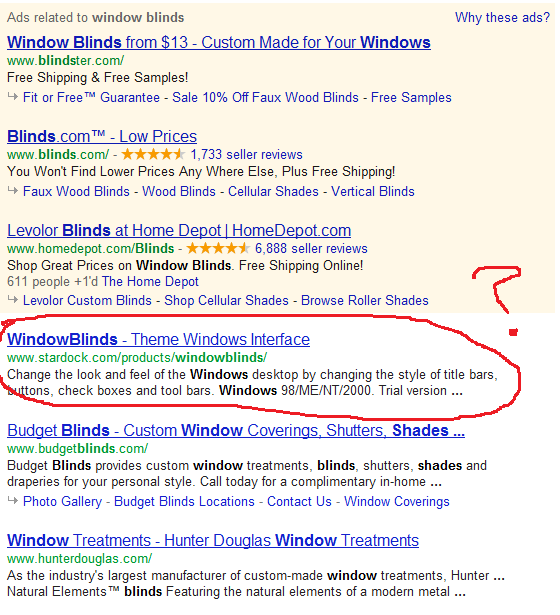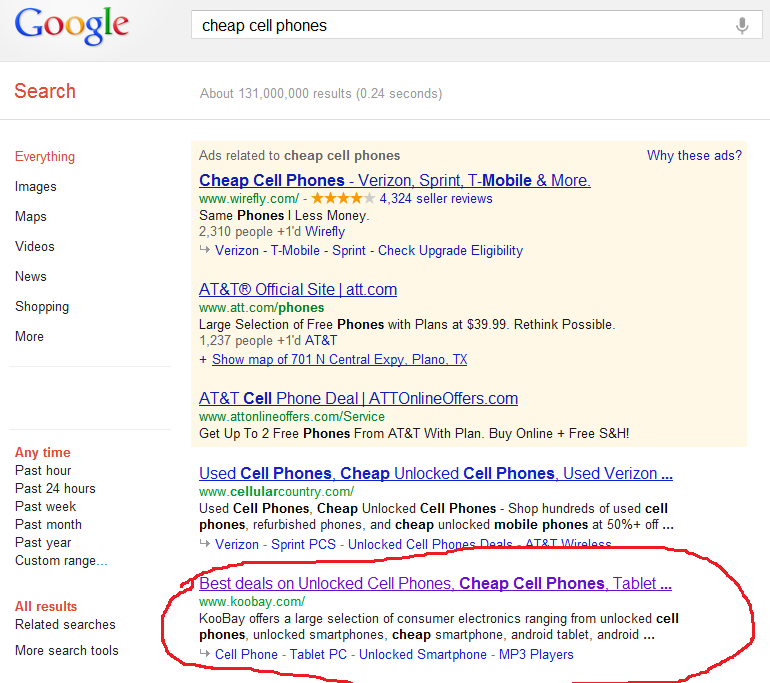Ranking in Google After Penguin – All You Need To Know To Hit The First Page
by Demian Caceres Internet Marketing Professional
My family and I recently visited the Dallas World Aquarium. They have a lot of great exhibits with some cool exotic animals, including penguins. One thing that really surprised me about the penguins is how bad they smelled. I mean, it was awful.
That’s why I think Google’s naming of their latest update is so fitting. Like real life penguins, Google’s Penguin update just stinks.
The goal of this latest update was respectable enough: prevent spammy backlinking techniques from being counted toward a site’s ranking in the search results. The problem was that Google seriously overreached in defining what exactly constituted “spam links”. The result is that a lot of high quality sites disappeared from the rankings. What’s left is, to put it mildly, often less than ideal.
Without getting too much into what I perceive as Google’s philosophy (this is supposed to be a practical post, after all), let me just say this: in my personal analysis of the search results post-Penguin, it appears that Google either didn’t realize that a large portion of high quality sites use the backlinking techniques they now consider “spam”, or they are so full of their own idealism about what should and shouldn’t be rewarded in their algorithm that they simply didn’t care how much damage they were going to cause to the quality and relevance of their results with this update.
Okay, enough of that. Let’s move on to the practical stuff. Now that the Penguin is here (to stay, apparently), what’s different about how you rank in Google?
Authority Domains Highly Favored
Let’s start with what’s pretty certain. My own analysis, and the analysis of other SEMs that I trust and respect, shows that big authority sites are more heavily favored than ever — even if that favoritism means far less relevant results. Amazon’s stock value should be rising rapidly based on how many search results they’re showing up for in comparison to just a few weeks ago.
Here’s an example that shows Google wrongly favoring authority over relevance. Do a search for window blinds, and look at who’s sitting in the number one position:

A site selling window blinds? Um, no. It’s software. While I’m sure a small number of people searching for window blinds are, in fact, looking for that software (since that’s its name), it’s safe to say that the vast majority are looking for blinds to hang on their windows. You can look at the AdWords ads to figure that out — notice that they are alladvertising window treatments, not software.
The reason Google is showing the software result first is that the domain it sits on (stardock.com) has far more authority than almost every other site in the top ten results (with the exception of overstock.com, who sits at number ten). Stardock.com has some five thousand unique domains linking to it, compared to two thousand or less for the next eight results (and most only have a few hundred domains linking to them). So even though the other results are far more relevant to the primary use of the keywords, they lose.
So why isn’t overstock.com winning if it’s got more authority than stardock.com? After all, Overstock has almost three times as many domains linking to it as Stardock.
That brings me to my next point.
Anchor Text Still Matters (Just Not Quite The Same Way)
The reason Overstock isn’t winning in the window blinds results is because the anchor text of the links aimed at its ranking page don’t reflect the query very well. They have some links targeting “window shades”, but not “window blinds”. On the other hand, the Stardock page has hundreds of links from different domains with the keywords “window blinds” in the anchor text.
As illustrated by this example, Google is still relying heavily on anchor text to help it determine relevance. However, one of Google’s stated goals in this and other recent updates was to lessen the value of what they consider “anchor text over-optimization”. That is, if the page has a large number of links to it, and too many of those links contain the exact keywords, the value of those links is lessened.
I’m seeing that in a lot of the search results now. More pages are ranking that have the terms in the anchor text of the links without having too many of their links loaded up with the exact search terms. Whereas before lots of pages with tons of exact-match anchor text were ranking.
What’s the percentage you should shoot for? That’s hard to say, because there’s a lot of variation. It seems to be on a query-by-query basis. For some search terms the percentage of exact match anchor text is very high, but it’s high for almost all of the top ranking pages. For other queries where exact-match links used to be very prevalent, the current results have far less exact keyword anchor text. So it’s a mixed bag, but despite what you may have heard, anchor text is still very much a factor in ranking post-Penguin.
Were Exact Match Domains Targeted?
I’ve read a lot of claims on popular SEO forums that Google was targeting exact match domains (EMDs) in the Penguin update, but that’s simply not the case. For every person who made that claim another member posted that their EMDs are doing better than ever.
I can attest to that. Many of Josh Spaulding’s case study sites that he did for our Keyword Canine launch are ranking very well for their keywords — and Josh likes to use exact match domains. Take a look:

Here you can see one of the case study sites Josh created based on a niche discovered by Keyword Canine, sugar addiction treatment. He created the site in late January of this year, and it’s been sitting in the top ten since February. The site is an EMD, and wasn’t touched by Penguin — it currently ranks third for its primary keywords. That’s just one example of many.
What’s more likely is that many of the exact match domains that got hit by Penguin were using backlinking methods the update flagged as “spam”, and so the sites went down. Since it’s common for these kind of EMD “throw away” sites to get ranked with poor quality links, an inordinate number may have been affected, giving the impression that Google was targeting those kinds of sites.
But What Is A “SPAM” Link Anyway?
Okay, so Google said that this update was supposed to be targeting low quality (“spam”) backlinks — such as links that come from content that’s completely unrelated to the link. Let me quote Matt Cutts directly from his blogpost announcing the update:
“Of course, most sites affected by this change aren’t so blatant. Here’s an example of a site with unusual linking patterns that is also affected by this change. Notice that if you try to read the text aloud you’ll discover that the outgoing links are completely unrelated to the actual content, and in fact the page text has been “spun” beyond recognition:”
Mr. Cutts then shows this image on the blog post:

That image is from this page. Notice that the unrelated link Mr. Cutts was talking about goes to dergimea.info, which simply redirects to checkintocash.com.
However, after the Penguin update checkintocash.com was still ranking number three in Google for “payday loan”. There was a lot of riotous laughter about that all over the forums (including my own post at JLForums.com). It was ranking for the keywords until at least April 30th. Did Google apply an embarrassed manual penalty to the site when word got to them about it? Good question.
I’m pretty sure it wasn’t an update to the algorithm, because there are still tons of sites ranking on the power of obviously spammy links. Take koobay.com, for example. It ranks number two for cheap cell phones:

What kind of backlinks does koobay.com have? Search this page for the phrase “Cheap Unlocked Cell Phones” and take a look. That page has a PageRank of four, so it passes significant link juice, and koobay.com has one seriously spammy link coming from that page. The link text is in English, but the page and the spam comment are in Spanish. If you search Google for the text of the spam comment, you can see that it was copy/pasted from some other page on the web.
So the link comes from a page that has nothing to do with cell phones or electronics, is in the wrong language, and is obviously spam.
But that’s just the beginning. Koobay has tons of obvious spam links. Blog networks, spam blog comments, pages full of unrelated links. And yet Koobay.com ranks number two for a moderately competitive set of keywords. So much for Penguin filtering low quality links.
So How DO You Rank in Google Now?
So if Google wasn’t targeting exact match domain names, and if anchor text still matters, and low quality links are still ranking sites — why do the search results look so different right now?
I think Aaron Wall (an SEM I have a lot of respect for) put it very well on his blog post regarding Penguin:
“Now more than ever SEO requires threading the needle: being sufficiently aggressive to see results, but not so aggressive that you get clipped for it (and hopefully building enough protection that makes it harder for others to clip you). That requires a tighter integration of the end to end process (tying efforts into analytics & analytics back into efforts) & a willing to view SEO through a broader marketing lens & throwing up a number of hail marry passes that likely won’t on their own back out but will give you a lower risk profile when combined with your other stuff.”
Pay particular attention to the part about tying efforts into analytics and analytics back into efforts. That means you need to research the results for the keywords you want to rank for, and base your efforts on that research.
For instance, many of the keywords I track have results ranked on the power of links coming from link directories (including uncategorized, low quality “directories” that are obviously meant only for backlinking and SEO purposes). Google does not appear to have targeted those kinds of links at all, no matter how low the quality or obvious the manipulation. Those kinds of links have been working for many, many years, and still are.
My own analysis also indicates that Google wants to see more variation in anchor text now than before the Penguin update. Many results that were doing heavy exact-match keyword linking aren’t ranking well anymore.
Finally, as I said before, authority domains are being favored more than ever. That includes blogs on Blogger.com. I’ve got an old blogspot blog that I stopped working on in 2008. It used to rank number one for “cat pictures” until I moved on to other projects and it eventually lost its ranking. But after the Penguin update, guess where it is? Back on page one (and earning a nice chunk of AdSense income as well, by the way). The most recent post to the blog is from February of 2008. So it might make sense to try and piggy back off of some of the authority domains like Blogger.
But as Aaron said, what YOU should be doing depends very much on the analysis of the keywords you’re wanting to rank for. That brings me to my final point:
Above All Else, Do Your Research!
My purpose in showing you all of this isn’t to point out how much the Penguin update failed to achieve any quality improvements in Google’s search results (though it clearly did fail in that regard, and badly). My point is to demonstrate that much of what you may be hearing about this update — be it on the forums or even from Google itself — is simply not reflected in the actual search results. That means you need to do your own research and rely on the real-world data surrounding the results for any keywords you want to rank for.
I personally use Keyword Canine’s new link analysis features to do my research (all of the data presented to you in this blog post came from Keyword Canine). I designed those features to cater to how my KC partner Josh and I do our SEO research.
Whatever tools you choose to use, though, do the research first and rely on the actual data, not on hearsay. There’s just too much of that floating around right now. In the coming weeks and months I’m sure we’ll all have a better handle on exactly what Google’s algorithm actually targeted, but even then it’s always best to do the research and rely on that information rather than on general SEO theories.
————————-
This post was taken from Jonathan Leger’s Blog
http://www.jonathanleger.com/ranking-in-google-after-penguin/
————————-
As Jonathan Leger (who is an expert and veteran in the SEO field) says…now Authority sites rank much much better than normally. This is where Empower Network Blog (the blog you are reading on) will do magnificently…we are a community of bloggers who blog on an authority platform and earn massive money on 100% commissions while living our dream lives…needless to say more than that…Just check it out and join (it’s only $25 to get started)
P.S. Give your like and altruist effort to share this if you liked it. ![]()
Discover your true potential and set yourself FREE,
Demian Cáceres
Sponsor Ads
Created on Dec 31st 1969 18:00. Viewed 0 times.



